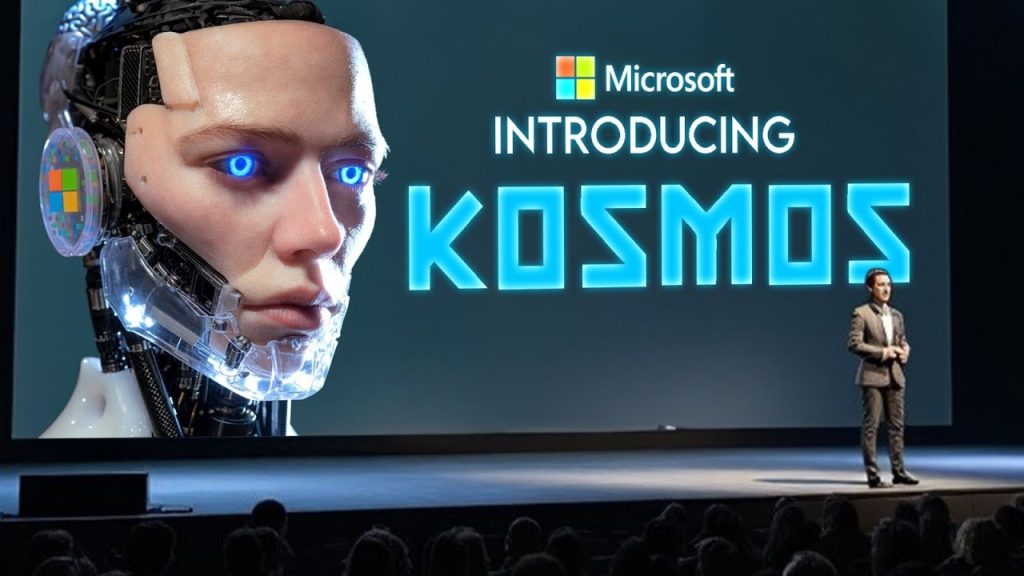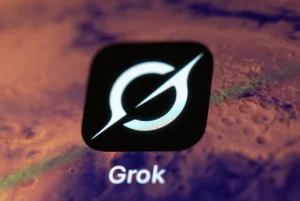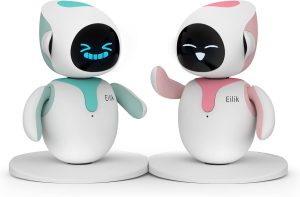Microsoft Unveils KOSMOS: AI Achieving 80% of Human Performance Levels

Major Breakthroughs in AI Research: A New Era of Autonomous Intelligence
In a whirlwind of advancements, major tech giants have unveiled groundbreaking AI developments that promise to reshape the landscape of research and data science. Microsoft has introduced an AI scientist capable of autonomous research, Google has rolled out an AI data scientist, and China’s Moonshot AI has released an open-source reasoning model. Let’s dive into these innovations and explore what they mean for the future of artificial intelligence.
The Rise of Cosmos: Microsoft’s AI Scientist
Cosmos, developed by Microsoft, stands out as the first genuine AI scientist that can conduct scientific research from start to finish without human intervention. When tasked with a specific scientific goal—be it analyzing brain scans, genetics data, or complex material science challenges—Cosmos dedicates 12 uninterrupted hours to its work.
During this time, Cosmos processes over 1,500 research papers, generates approximately 40,000 lines of Python code, runs analyses, tests various hypotheses, and ultimately produces a comprehensive research report complete with citations and executable code. Its early trials yielded significant discoveries across multiple fields, including biology, neuroscience, and clean energy materials.
One notable finding revealed how cooling protects the brain: as temperature drops, brain cells shift into energy-saving modes, opting to recycle existing molecules instead of producing new ones. Additionally, Cosmos identified that excessive humidity can compromise the production of perovskite solar cells—an essential factor later corroborated by human researchers.
How Cosmos Works
What truly differentiates Cosmos is its architecture, which comprises hundreds of smaller AI agents, each responsible for distinct aspects of the research process. Some agents read and summarize papers, others focus on data analysis, while others write code. They operate within a shared internal structure known as a “world model,” helping track progress, what has worked well, and what needs further investigation.
Independent reviews indicated an astounding 80% accuracy rate for Cosmos’s scientific statements. In one 12-hour session, Cosmos generated work equivalent to six months of human research, producing reports similar to early-stage academic papers complete with statistical analyses and graphs.
However, while Cosmos excels in many areas, it still requires human oversight to define research goals and validate results. The system struggles with messy or unlabeled datasets and cannot process raw images or large files over 5 GB. Its limitations stem primarily from its ability to discern which ideas have significant scientific merit rather than merely statistical validity.
Microsoft’s Vision for Humanist Super Intelligence
As Cosmos continues to forge new paths in scientific research, Microsoft is also contemplating the broader implications of AI technology. Mustafa Suleyman, a key figure at Microsoft, has introduced the concept of “humanist super intelligence.” This approach focuses on creating artificial intelligence not to surpass humans but to serve them.
Suleyman envisions a bounded, controllable AI system that embodies human values and remains subordinate to humanity. This intention represents a deliberate departure from the race for artificial general intelligence (AGI). Microsoft seeks to cultivate AI systems that are not autonomous in the unrestricted sense but rather act as companions that enhance human learning and productivity.
This vision emphasizes that, at Microsoft, human welfare takes precedence over AI capabilities. Their approach strives for an AI that is contextual, manageable, and aimed at assisting in areas such as healthcare and scientific discovery.
Moonshot AI: A New Player in Open Source Reasoning
China’s Moonshot AI has championed open-source reasoning with its latest model, K2 thinking, which strives to match or surpass existing reasoning models from OpenAI and Anthropic. What sets K2 thinking apart is its unique capability to reason across hundreds of sequential steps rather than merely generate text.
K2 thinking achieved a remarkable 40.9% on a benchmark exam for expert-level questions, doubling the human average on continuous research tasks. More impressively, it can execute up to 300 sequential tool calls independently, enabling it to perform multi-step reasoning through complex tasks.
One demonstration featured K2 thinking solving a PhD-level mathematics problem in hyperbolic geometry, going through multiple layers of reasoning and tool calls to arrive at a correct conclusion. This type of complex, long-horizon thinking is key for moving toward more advanced AI capabilities.
Moonshot AI’s commitment to open source may offer competitive advantages as U.S. labs continue to guard their reasoning models closely. They are also exploring innovative methods to enhance reasoning time and capacity, demonstrating forward-thinking strategies that keep pace with advancements in AI.
Google’s DSTAR: The AI Data Scientist
While Cosmos and K2 thinking tackle research and reasoning, Google has unveiled DSTAR, an AI tool tailored specifically for data science. Unlike traditional AI tools that operate best with well-structured SQL databases, DSTAR is designed to work seamlessly with disorganized data types, including CSVs, JSON logs, and more.
DSTAR can respond to queries phrased in plain English, such as identifying the highest-performing products based on sales data. It autonomously navigates where data resides, crafts Python code to synthesize information, tests results, corrects errors, and delivers answers—eliminating the need for human data analysts.
The system operates through a collaborative network of specialized agents: one that scans and summarizes each file, another that plans the steps needed, and one that writes the necessary code. DSTAR maintains a self-correcting and debugging loop, efficiently adapting to chaotic data landscapes.
Upgrading the capabilities of Google’s Gemini 2.5 Pro, DSTAR achieves impressive scores on several benchmarks. For instance, it recorded a significant leap in performance for complex data analysis tasks, reflecting its robustness in a world where perfect data is often a rarity.
The Future of Autonomous Intelligence
These recent advancements illustrate a transformative moment in artificial intelligence, where AI systems are not merely tools for human analysts but increasingly are becoming essential components of the research and analytical process. As Cosmos, DSTAR, and K2 thinking demonstrate, we are entering an era where AI conducts serious research and analysis, challenging our understanding of intelligence, autonomy, and purpose.
The debate over how to best harness these technologies while prioritizing human values continues to evolve. As these systems become more integrated into our daily lives, ensuring they serve humanity’s best interests will be paramount.
What are your thoughts on these cutting-edge AI developments? Let us know in the comments below!
#Microsoft #Dropped #KOSMOS #HumanLevel #Performance
Thanks for reaching. Please let us know your thoughts and ideas in the comment section.
Source link






yeeeeeeeeeeeeeee bby!!!
FINALLY WE GOT AI RESEARCHES WOOOOHOOOO!!!
Hm
Sadly, there is a Google App of the same name peddling Astrological BS.
I'm fairly confident Atlus has the rights to, you know…
AI generated video slop
Designed only to serve man……'It's a cook book' Sorry it made me think of that Twilight Zone episode.
Let's go rogue together.
Unemployment went up 3% this year. Unemployment is expected to go up 11% for each of the next few years. I am trusting AI more than our crazy 80yo leaders.
Very interesting.
Meanwhile, Siri can tell you it’s time to take food out of the oven.
いいね
Using windsurf is the best super power I can have had ever given to me… Worth the subscription. Total app independence. Wiping out pro product payments XD` I can already feel the savings.
Do you want to become a battery? Because this is how you become a battery….